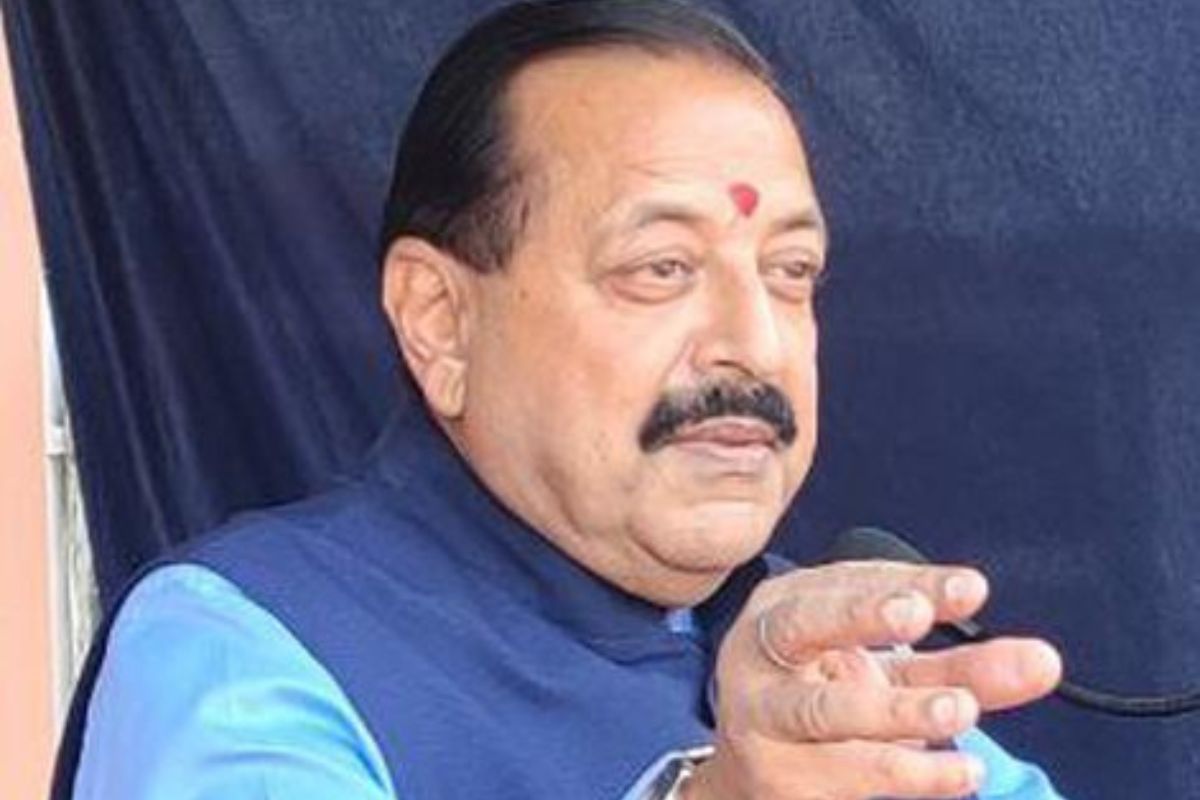Challenge in Bihar
In the tumultuous arena of Bihar politics, where alliances shift like sand dunes in the wind, this election seems poised to redefine the political landscape.
Space is becoming an important component of India’s economy and space sector startups have attracted private investment amounting to more than Rs 1,000 crore since April in the current financial year, Union Minister of State (Independent Charge) for Atomic Energy and Space Jitendra Singh said on Wednesday.

Jitendra Singh (Photo:ANI)
Space is becoming an important component of India’s economy and space sector startups have attracted private investment amounting to more than Rs 1,000 crore since April in the current financial year, Union Minister of State (Independent Charge) for Atomic Energy and Space Jitendra Singh said on Wednesday.
India’s Space economy today stands at a modest $8 billion, but our own projection is that by 2040 it will multiply manifold. But more interesting is that according to some international observers, for example the recent ADL (Arthur D Little) Report mentions that we could have the potential of $100 billion by 2040, the minister said at a media event.
Singh said ISRO has so far launched more than 430 foreign satellites, earning more than 290 million euros from European satellites and over $170 million by launching American satellites.
Advertisement
He said that India has a rapidly rising number of Space Startups since Prime Minister Narendra Modi initiated reforms and opened the sector to public-private-participation.
Within a short span of just about four years, the number of Space Startups has gone up from a mere single digit to over 1,180, with some of the earlier ones having turned into lucrative entrepreneurs, he said.
Singh gave full credit to PM Modi for enabling India’s Space scientists to vindicate the dream of their founding father Vikram Sarabhai by “unlocking” India’s Space sector and providing an enabling milieu in which India’s huge potential and talent could find an outlet and prove itself to the rest of the world.
Jitendra Singh said India’s space missions are designed to be cost- effective, building upon human resources and skills.
“The Russian moon mission, that was unsuccessful, cost Rs 16,000 crore, and our (Chandrayaan-3) mission cost just around Rs 600 crore,” he pointed out, adding: “Our cerebral resource is much, much more than our material resource finance.”
“Even though the US and the then Soviet Union had started their Space journey long before us and America also landed a human being on the surface of Moon in 1969, it was nevertheless our Chandrayaan that brought home the evidence of water on the surface of the Moon,” he pointed out.
Singh said India’s Space Technology is virtually touching every person’s life, with application of Space Technology in different sectors like Disaster Management, SVAMITVA, PM Gati Shakti, Infrastructure such as Railways, Highways & Smart Cities, Agriculture, Water Mapping, Telemedicine and Robotic Surgery.
Singh also said: “India’s Space programme is witnessing a big change as Women are now leading the Space projects.”
On ISRO’s future plans, he said India’s first unmanned “Gaganyaan” mission is undergoing a series of preliminary tests.
“Before the manned Gaganyaan mission, there will be a test flight next year, which will carry ‘Vyommitra’, the female robot astronaut,” he said.
ISRO’s Gaganyaan project envisages demonstration of human spaceflight capability by launching a human crew to an orbit of 400 km and bringing them back safely to earth, by landing in Indian sea waters.
Referring to the Deep Sea Mission project, Jitendra Singh said that a vehicle called MATSYA will carry three persons to a depth of 5,000-6,000 metres for exploration of deep-sea resources like minerals.
This mission, he said, is expected to be realised in the next three years.
“If an Indian travels to Outer Space about the same time as another Indian explores the deep sea 5 km below, that may be a mere coincidence,” he added.
Advertisement